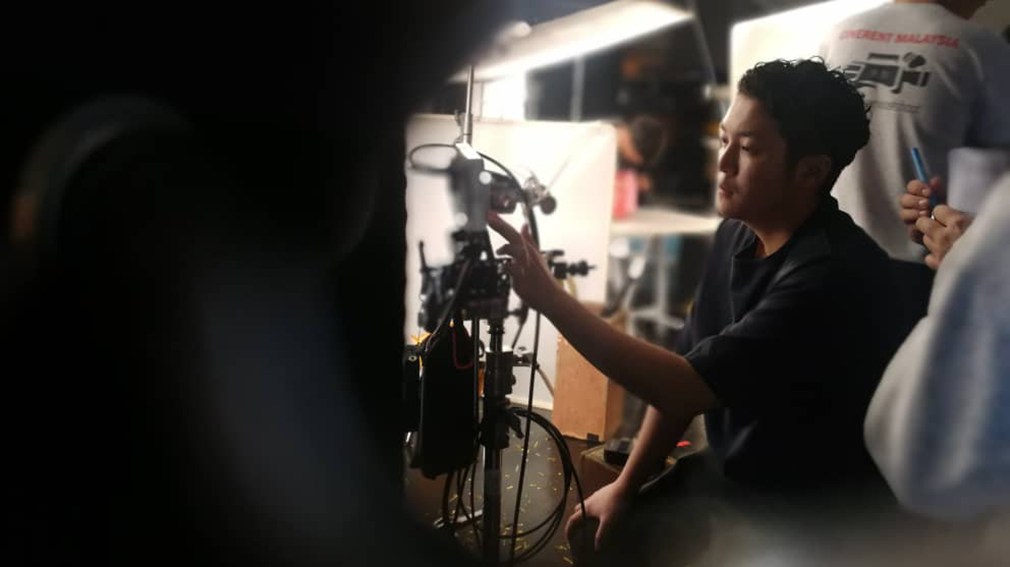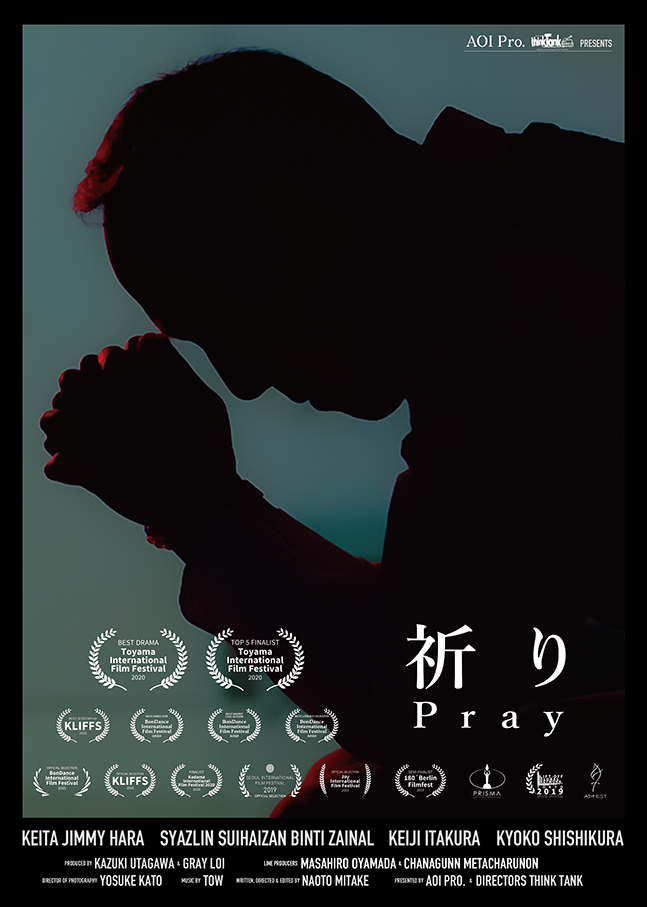DIRECTOR’S PROFILE: Directors Think Tank Director Naoto Mitake

Japanese-born and KL based Naoto Mitake is a director at Directors Think Tank, a leading production company in Asia with offices around the region including Singapore, Malaysia and Indonesia. Campaign Brief Asia put 15 questions to Mitake to find out more about him and his approach to directing.
1. What’s your favorite part of the job?
Shooting, especially when we found something unexpected on-set, and we managed to get this moment. Shooting is addictive. I love the moment when the shoot is over, and everybody looks so relieved. I love to taking a cold beer with everybody! It’s worth celebrating, isn’t it! (I don’t mention the offline presentation would be the day after tomorrow, in this context. Better not.)
2. What is your most productive time of day and why?
Uhm, I don’t have any! If you force me, it would be midnight time and after that. I love to spend times when it’s quiet and calm, and that’s something to do with coming up with ideas. When I got stuck, I drink Sake and listen to some acoustic music before restarting. I am now listening to Beck “Go It Alone” while I am writing this. Good song.
3. If you didn’t have this job, what would you be doing instead?
I would love to be a bartender. Bartender like that appears in Haruki Murakami’s novel, maybe. Running a super tiny bar in the middle of the busiest city and enjoy talking with the tired regular customers. At that bar, old blues or folk musicians play until morning. Maybe I could do that in the future.
4. How early did you know this would be your path?
When I was seven or eight, it was very clear that I want to be a film director. Now I’m very much enjoying making commercials, but at the same time, I still have my passion for films. I guess I should do another sometime in the near future.
5. Can you name some recent jobs?
Toyota and Standard Chartered for directing. For AOI Pro, I remotely give ideas as “content planner”. I am always thinking about my role as director for each job. Sometimes it’s to think about execution or how to enhance the concept. Other times, I feel to be required to think about writing script from zero. I enjoy both processes.
6. Do you put on a different hat when shooting for a specific genre?
Yes, I really do. It’s all dependent on the story. I even enjoy putting on different hat, actually. Things that don’t change are, I am always being true to myself, believing what’s right for me, and enjoy each genre.
7. Have you been continuing to shoot during the COVID crisis? Can you describe that experience?
During the time of COVID, I wasn’t very passionate for shooting, honestly. Instead, I was writing ideas for films. In the environment like lockdown, I was trying to find what I feel, in the positive & negative way. Thinking about negative things are not always bad things, I believe. Negativity is part of my emotion. I don’t need to hide that away. When I am feeling down, I write things about that. When I am happy, I write things about that. That’s what I feel being honest to myself.
8. Do you have a favorite piece of kit?
I would love to say books and CDs, but now I look around my room and found there is nothing around me. What a shame. I left my favorite things in my place in Japan.
9. Are you often asked to do more than direct? If so, what are you asked to do?
It’s kind of similar as question 5, but yes, I was asked to do multiple things, sometimes as cinematographer, editor, content planner, or screenwriter. Even on-set sound operator or assistant cinematographer back in the days! I do because all these processes are related to directing, and I believe it’s good to know each role. One thing I can’t do is producing, which is coming from my personality. I am not punctual kind of guy!
10. What are three pieces of technology you can’t live without?
Laptop, laptop, and laptop. Last year during the lockdown, I spilt my coffee into the laptop. It was nightmare.
11. This is a high-stress job. What do you do to de-stress from it all?
To try not to think that it’s a high-stress job. I actually don’t feel it’s stressful, even if I am occupied. There are times I slightly feel that way, but in that case, I watch the most ridiculous contents on YouTube. Funny people are just great.
12. How do you manage producers’ expectations with the reality of what can really be done?
I believe all the Think Tank members are keen on the quality of the output. I am very much thankful for this environment. Based on that, all I can do is to come up with the idea that I can confidently present. If the budget doesn’t allow, I smile to the producer and ask for the help. If it really doesn’t work, we discuss what we can give up and what we can compensate, instead.
13. How do you manage your time? Do you manage expectations or try everything they ask of you?
No, I don’t think I give satisfaction to all the people around me. I may give tragedy for producers sometimes, and I apologise for that. Communication is not that easy. I also don’t think I dedicate all my times for the projects. It’s not about the time. It’s about how good the idea to become. Of course, sometimes it takes the whole day and night to satisfy myself, but it’s about how I enjoy doing this. If I lose that aspect, I better retire.
14. When someone who is starting out asks what they should learn, what do you recommend?
Learn what you love to learn. Don’t learn what you hate, even if it’s told by the greatest director in the world. To learn what you hate is just a waste of time.
…Please keep in mind that I am just 28 years old. I am not qualified to say that yet!
15. How do you take criticism? Do you find yourself defensive or accepting of others’ ideas (good and bad)?
Criticism is one of the most important things for anything. Not only advertising, but for all the industries. I am not reluctant to criticize senior director’s works. I hope it’s not about the age for speaking up. I don’t mind if a little kid criticizes my works because it’s open for everybody. I think saying honest things would make the society healthy and liberal. Please feel free to criticize my works. Don’t just be anonymous and criticize on the internet, though!

